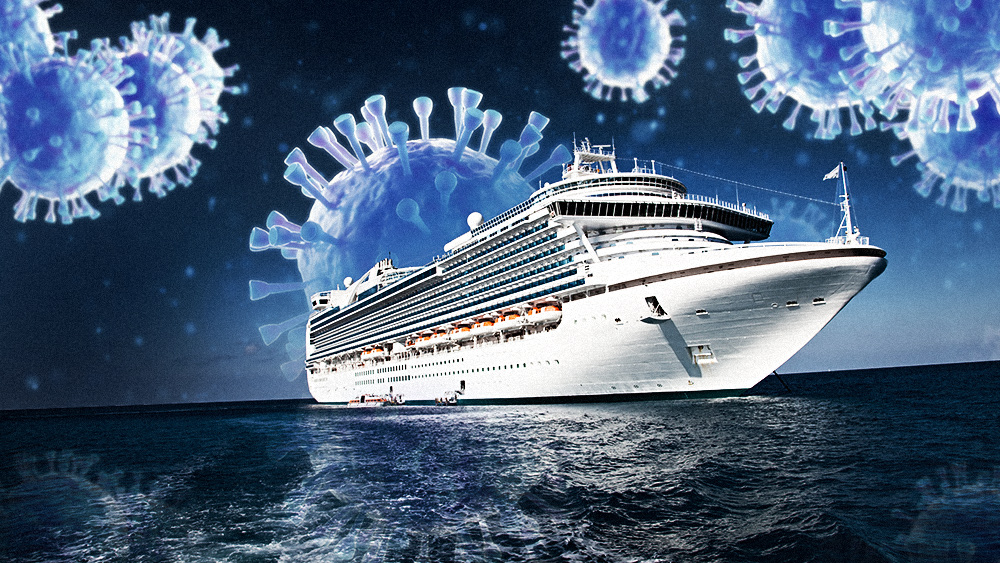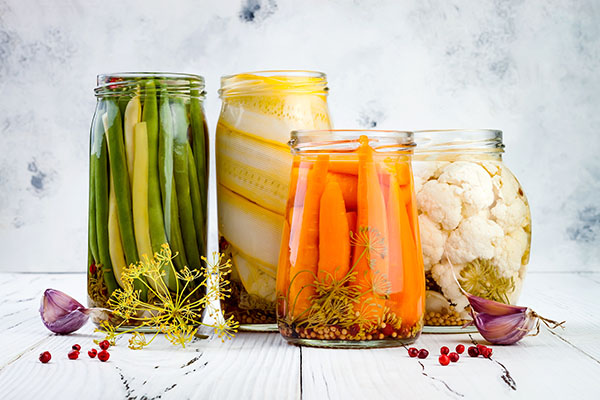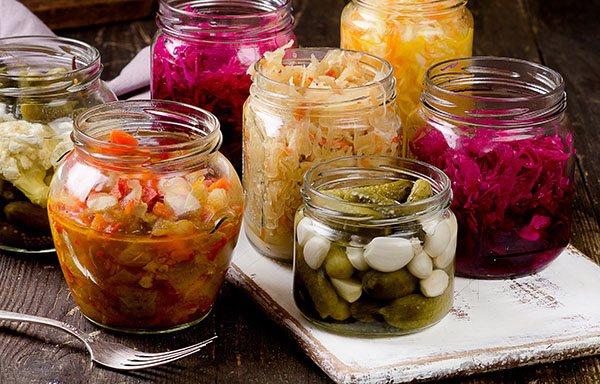
Your gut contains around 500 species of bacteria. Some are good bacteria, such as lactobacilli or bifidobacteria, while others are bad bacteria, such as yeasts and parasites. It is important to keep a healthy balance of bacteria; otherwise, it could seriously damage your gut flora. Having too little good bacteria or too much bad bacteria could result in frequent cases of flu and colds, autoimmune disease, candida, digestive problems, skin issues, and other ailments and disorders.
To keep your gut flora healthy, and the rest of your body by extension, you should take plenty of fermented foods that are rich in probiotics, such as kefir, organic yogurt, kombucha, kimchi, miso, and sauerkraut. However, you should also supplement this with foods that contain many prebiotics, such as raw jicama, leafy greens, artichokes, raw leeks, raw or cooked onions, raw garlic, raw asparagus, raw dandelion greens, underripe bananas and raw Jerusalem artichokes. These are food items that our bodies normally cannot digest, but are beneficial in feeding the probiotics. (Related: Why prebiotics are absolutely essential to gut health.)
Health benefits of consuming probiotics
Probiotics promote the healthy balance of bacteria in our gut. Here are some of the health benefits you can gain from consuming probiotics:
- Probiotics can help prevent and treat diarrhea. If you take antibiotics, which mean "against life," one of the common side effects it could lead to is diarrhea. This is a result of the antibiotics disrupting the delicate balance of good and bad bacteria in your gut. Several studies suggest that probiotics can help reduce the risk of antibiotic-associated diarrhea and help with the treatment of other forms of diarrhea. Certain strains of probiotics may even help to shorten the duration of infectious diarrhea. The most effective probiotic strains that are commonly linked with a decreased risk of diarrhea include Lactobacillus rhamnosus, Lactobacillus casei and the yeast Saccharomyces boulardii.
- Probiotics can reduce levels of bad cholesterol. Bile is a naturally occurring fluid that aids in digestion. It is mostly made of cholesterol, so if it is reabsorbed into the gut, it enters the bloodstream in its cholesterol form. Probiotics can help to reduce cholesterol levels by breaking down bile while it's still in the gut, keeping it from entering the bloodstream.
- Probiotic supplements may improve mental health conditions. Some studies have found that supplementing with certain probiotic strains for one to two months can help improve some mental health issues, such as anxiety, depression, autism, obsessive-compulsive disorder (OCD) and memory problems.
- Probiotics may aid in weight loss. If you want to lose weight and belly fat, there are some ways in which probiotics can help you. However, you should be aware of which kinds of probiotics you should consume as not all of them aid in weight loss. Some probiotic strains inhibit the absorption of dietary fat in your intestines, while others may help you feel full for longer periods, burn more calories, and store less fat. Beneficial probiotic strains for weight loss include Lactobacillus rhamnosus and Lactobacillus gasseri.
- Probiotics may help boost your immune system. They can help to inhibit the growth of bad or harmful bacteria in your gut. Some probiotic strains may even help prevent infection by boosting the production of your body's immune cells, T cells, natural killer cells, and natural antibodies.
If you want to learn more about the health benefits of probiotics and prebiotics, you can read more articles by going to Health.news.
Sources include:
Please contact us for more information.























